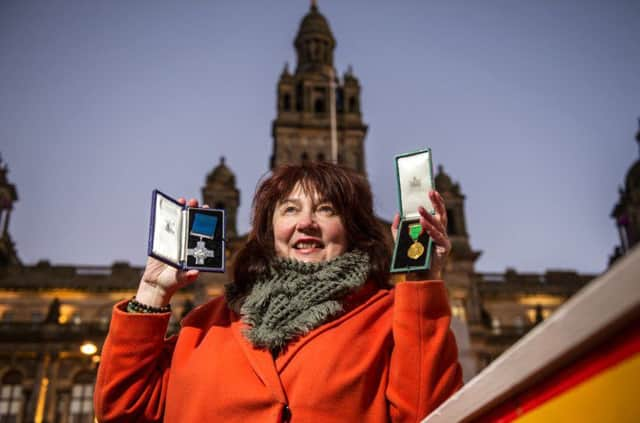Plaque unveiled for hero railway worker killed in 1973


Father-of-three James Kennedy, 43, was gunned down at the former St Rollox Railway Engineering Works in Glasgow as a gang of six men made off with the £9,854.39 payroll on December 21 1973.
Despite knowing they were armed, Mr Kennedy stood in the gateway to prevent their escape and was severely beaten.
Advertisement
Hide AdAdvertisement
Hide AdLondoner Sydney Draper murdered him with a parting blast from his shotgun as Mr Kennedy made a final bid to stop them running towards their van.
The robbery was planned for opening time, just after 7am. Mr Kennedy was taken to the city’s Royal Infirmary where he died.
Mr Kennedy has been honoured with a memorial plaque at the scene of the former engineering works, which was part of British Rail Engineering (Glasgow) Ltd.
Glasgow Lord Provost Eva Bolander, who unveiled the plaque, said: “It’s a privilege to honour the bravery of James Kennedy almost half a century since he tragically lost his life. It’s important his story of heroism is heard and remembered for posterity.”
Mr Kennedy, from Bearsden, left behind his wife Ellen, 40, and three daughters.
He was posthumously decorated with the Glasgow Corporation Bravery Medal in 1974 and the Queen presented his widow and children with the George Cross at Buckingham Palace in 1975.
His daughter Elspeth, who was six when her father was killed, said: “I’m extremely proud of my dad. He died a hero. I’m delighted to have this opportunity to celebrate that bravery. I’m proud he did the right thing. His life counts and his courage is inspiring.”
Remembering how she heard about his death she said: “We were at my maternal granddad William Stuart’s house. The police had taken a while to find us because we weren’t at home and there weren’t mobile phones or anything like that then.
Advertisement
Hide AdAdvertisement
Hide Ad“It was about lunch time. I remember it was two police detectives who came. They weren’t in uniform. One of them took us into the front room. The other took mum and granddad into the kitchen. I just remember my mum howling - screaming.
“It was on the news. I remember the detective putting the television off. I often wonder what would have happened if they hadn’t found us, and told us, before we saw it on the news.
“My dad went to work that day and never came home. Christmas time always brings back memories of my dad.
“It was really hard financially and emotionally for my mum, who’s passed now, with three small children. Her faith as a Jehovah Witness helped her through it.”
Her elder sister Shona was eight and Leila was four when their father was murdered.
Draper was sentenced to life for murder on April 10 1974.